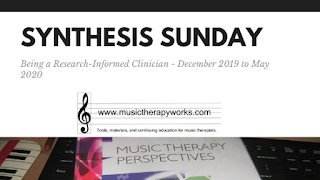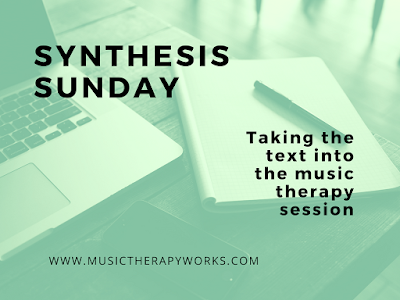Synthesis Sunday: Identity Formation and Adolescents: Part 2

It is Sunday again in this part of the world, and that means sitting down and thinking a bit about research. Last week, I started synthesizing an article about identity formation and working with adolescents (the full citation is below) that came to me courtesy of Music Therapy Perspectives . I described my process. The task for today is to actually put all of the information that I saw into my reference sheet and finish it all up. If you are interested in using my synthesis sheet, it is available on this link in my Teachers Pay Teachers store ...It doesn't look really impressive on the thumbnail form, but it works for me. It might work for you!! I left off in at the process of organizing my post-it note thoughts into different categories and then making the form a bit more final, so let's get to it! I think I will start with the thoughts on the teal post-its. Here are the rough thoughts... the population was "teenagers who had mild and moderate developmental d...






